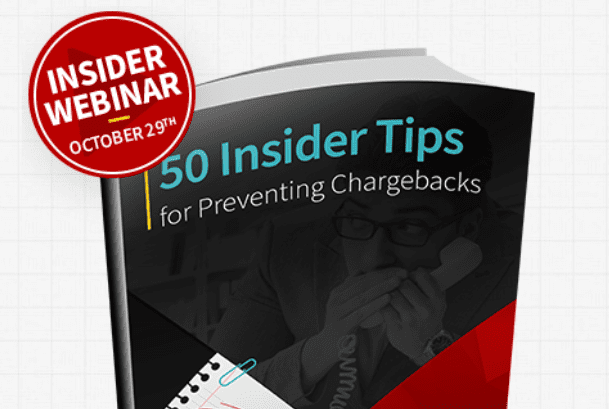Chargeback dispute management specialist, Chargebacks911, has today announced the launch of its latest ebook, “50 Insider Tips for Preventing Chargebacks”, which provides merchants with actionable steps to prevent chargebacks filed against their businesses.
The company has launched the ebook at a time when all industries have seen a sudden increase in chargebacks due to the COVID-19 pandemic. During initial lockdowns, businesses across all sectors moved into the online space in order to survive – and an increase in online spending usually results in higher rates of online fraud and chargebacks. Consequently, the bustling online space is now fertile ground for payment disputes and some industries are experiencing 10 times the amount of chargebacks than before the pandemic.
Chargebacks911’s COO and Co-Founder, Monica Eaton-Cardone explained:
“Changes to commerce brought on by the pandemic are likely here to stay. We expect the heightened levels of chargebacks to continue as customers are more comfortable than ever shopping online, while companies new to the online space are embracing their digital capabilities. With this ebook, we aim to provide businesses with the tools necessary to manoeuvre around the new digital environment.”
The ebook will allow merchants to benefit from the insight and experience Chargebacks911 has by highlighting key errors merchants have made – and continue to make – when providing services to their customers that result in chargebacks, along with advice about rectifying these issues. This includes guidance on bolstering customer service efforts to ensure buyers are happy, improving communication with customers to make sure there are no misunderstandings, revisiting policies and procedures, and best practices for marketing products online.
At the same time, the ebook reveals today’s key fraud trends that can result in chargebacks. It explains what preventative measures must be taken against criminal fraud in order to reduce payment disputes. It also tackles the issue of chargeback fraud, also known as friendly fraud – which accounts for between 60 and 80% of all payment disputes.
Friendly fraud occurs when baseless refunds are forced upon merchants. It happens when a cardholder reports a fraudulent (or incorrect) charge to their bank, even though the cardholder purchased and received the correct product. If the merchant fails to conclusively prove the legitimacy of the sale – which is a difficult burden for digital transactions and contact-free, COVID-era front porch deliveries – the cardholder “cyber-shoplifts” successfully. This type of fraud has contributed to the total cost of chargebacks rising to over £100 billion annually, by some estimates.
What’s more, changes to consumer perception and behaviour have spurred on the growth of friendly fraud during COVID-19. Monica elaborated on this: “Panicked consumers impacted by furlough or job loss, are now turning to chargebacks to recoup money. At the same time, friendly fraud has become easier to commit as consumers are shielded by online anonymity, while there is no-one to confirm that a package arrived safely at the point of exchange. Businesses must be able to mitigate this type of fraud or they run the risk of being hit by it over and over again.”
Exacerbating the issue is that one of merchants’ biggest problems is distinguishing between friendly fraud and genuine chargebacks. This can pose serious problems for businesses as in order to mitigate chargebacks, their cause must be identified. If this isn’t done, merchants can end up refunding instances of friendly fraud, making them look like easy targets to those committing it, or they can find themselves disputing genuine claims and losing loyal customers in the process. The ebook will tell readers what the first steps are when it comes to spotting and stopping friendly fraud.
The ebook is free to download and those who do before 29th October are automatically registered for a webinar explaining more about lowering chargeback rates. You can access the ebook here.
